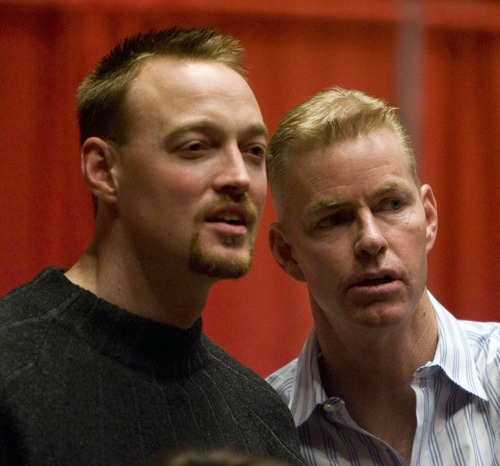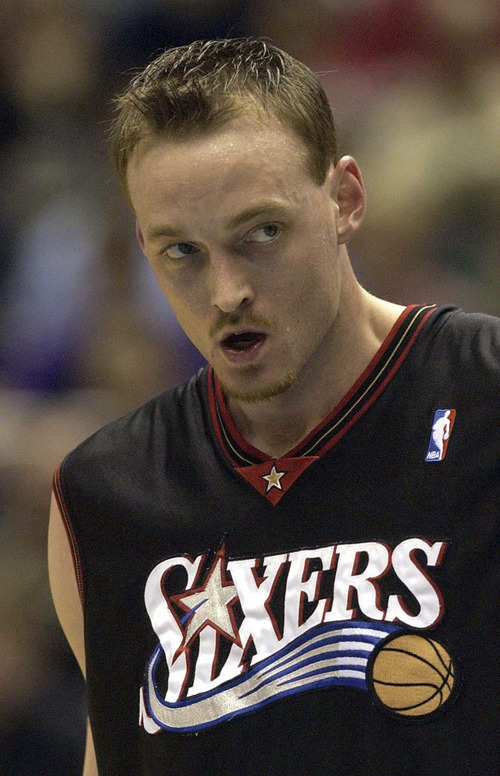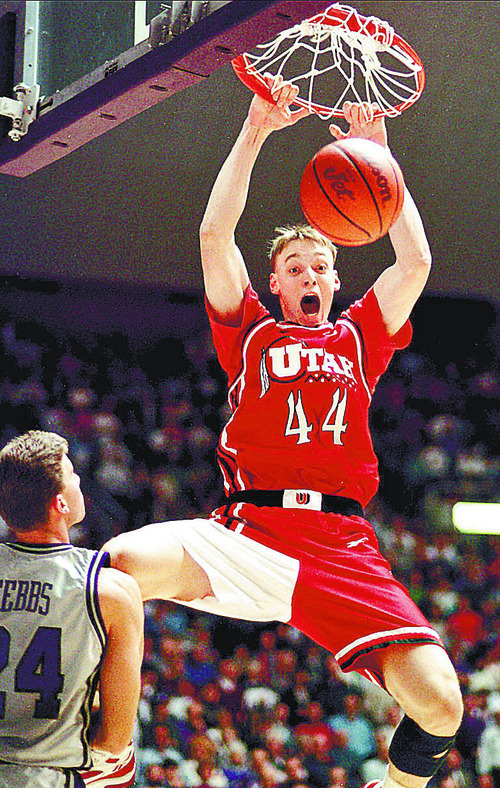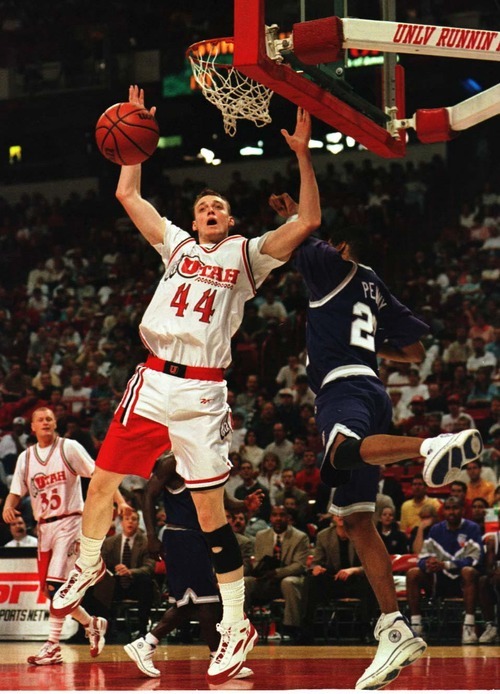This is an archived article that was published on sltrib.com in 2012, and information in the article may be outdated. It is provided only for personal research purposes and may not be reprinted.
Keith Van Horn's initial post-NBA job description sure sounded like an idyllic existence: Co-founder, Lincoln Hills Fly Fishing Club.
Naturally, he sold his majority interest in the club and launched a software development company that demands considerable time and effort, not that raising four children fails to occupy him.
"I like to be busy," Van Horn said.
So here he is, six years removed from his basketball career, wealthy beyond any University of Utah sociology major's imagination — and continually working.
"I admire that about him," said Kelly Leonard, a former Ute teammate. "Let me put it this way: He works like he still has to pay rent."
Utah's all-time leading scorer will be inducted Monday into the school's Crimson Club Hall of Fame. The honor celebrates a four-year career during which Van Horn lost his father and became a father, among the events that forever shaped his life.
"I feel a connection to the university that goes far beyond the basketball program, for a number of different reasons. I went through a lot of things personally while I was there," said Van Horn, who lives west of Denver. "I'll always be kind of rooted in the university."
Uprooted, in contrast, is a good word to characterize Van Horn's NBA career — and why he ended it when he did, in the interests of his wife, Amy, and their children. A lifestyle created by playing for five teams in nine seasons and being traded three times in 19 months made him re-examine the merits of basketball beyond age 30.
So he walked away in the summer of 2006. Van Horn had just played in the NBA Finals (losing to Miami) for a Dallas team that included Devin Harris, now a Jazz guard. "Everybody wants to leave on his own terms," said Harris, who described Van Horn as "a constant professional."
Certainly, Van Horn's having earned $84 million made retiring from the NBA feasible, but he could have kept playing.
"I knew it was starting to take a toll, just on the overall family," he said. "It hurt my kids in terms of feeling like they had a home. I really felt uncomfortable every couple of years taking them out of schools.
"So maybe not necessarily for my career or as an individual," he said, "but just as a father and a husband, it was best that I stop."
That's among the reasons former Ute coach Rick Majerus said, "Keith belongs in the parent hall of fame."
Van Horn's daughter Sabrina, 16, was born near the end of his sophomore year at Utah, followed by a son and two other daughters: Nick, 14; Noelle, 12; and Haley, 9.
Sabrina plays soccer for Mullen High School in Denver. Noelle and Haley are aspiring basketball players; their father helps coach their teams.
Van Horn said Majerus would be "shocked" to know how much he emphasizes fundamentals to his daughters, having arrived at Utah as a flawed, if talented, player from suburban Los Angeles.
Majerus is Noelle's godfather and remains close to Van Horn, having counseled him through the death of his father during his freshman season. "He channeled that grief into a phenomenal performance," Majerus said, "with concern for his mother, his wife and now his kids."
Van Horn is satisfied with his basketball career. The Utes reached the Final Four only after he left, but he hardly could have done more for the program. In the NBA, he fell short of some expectations as the No. 2 overall pick (behind Tim Duncan) in 1997, while losing in the Finals with New Jersey in '02 and Dallas in '06. Yet he averaged 16.0 points in 575 games over nine seasons.
Whether it is a curse of the ex-Utes or a sign that they were wanted, Van Horn and college teammates Andre Miller (who's still active) and Michael Doleac have played for a combined 16 teams in the NBA. That part of the business surprised Van Horn, who said, "I always wanted to play for one team — or very few teams — for basketball and family reasons."
Even after he left the NBA, there would be one more trade. Because he had not officially retired, the Mavericks managed to package him in a 2008 trade with New Jersey, involving Harris and Jason Kidd. Via a sign-and-trade arrangement that balanced the contracts in the deal, Van Horn earned $4.3 million without playing.
That's partly why Leonard often tells Van Horn, "Anything you touch turns to gold."
Leonard mostly attributes Van Horn's business success to intelligence and work ethic. More than anything, Leonard values the friendship of a star who never treated him like a little-used walk-on.
"He's a really loyal friend; that hasn't changed throughout the years," Leonard said. "All the money he's made and all the fame, it's never gone to his head. He's just one of the guys."
Twitter: @tribkurt —
Headed for a Hall
In the Crimson Club Hall of Fame's inductions Monday at EnergySolutions Arena, basketball star Keith Van Horn will join softball and volleyball coach/administrator Norma Carr, skier Bente Dahlum and football coach Ron McBride in the Class of 2012.
—
Keith Van Horn's Utah statistics
Year Pts. Reb.
1993-94 18.3 8.3
1994-95 21.0 8.5
1995-96 21.4 8.8
1996-97 22.0 9.5
Average 20.8 8.8









